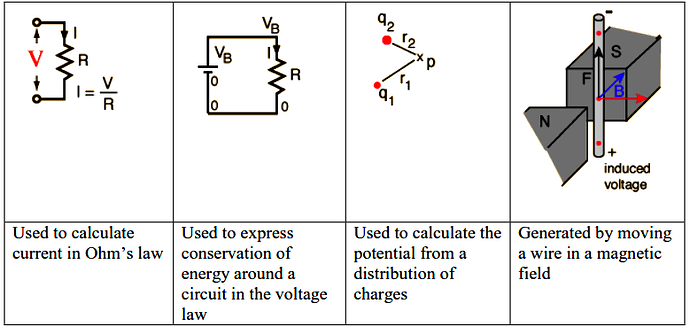Voltage is electric potential energy per unit charge, measured in joules per coulomb (volts). It is often referred to as “electric potential,” which then must be distinguished from electric potential energy by noting that the “potential” is a “per-unit-charge” quantity.
Like mechanical potential energy, the zero of potential can be chosen at any point, so the difference in voltage is the quantity which is physically meaningful. The difference in voltage measured when moving from point A to point B is equal to the work which would have to be done, per unit charge, against the electric field to move the charge from A to B.
Source: Georgia State University, Hyperphysics, Voltage
